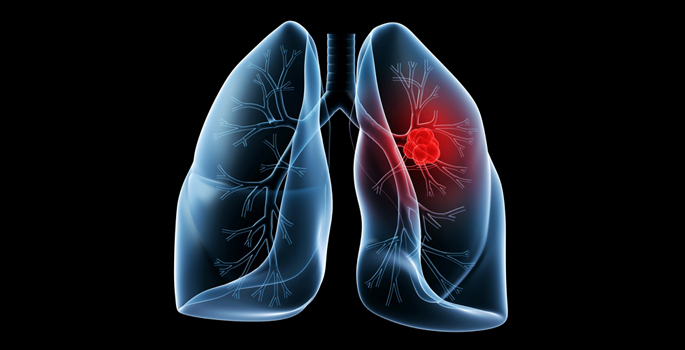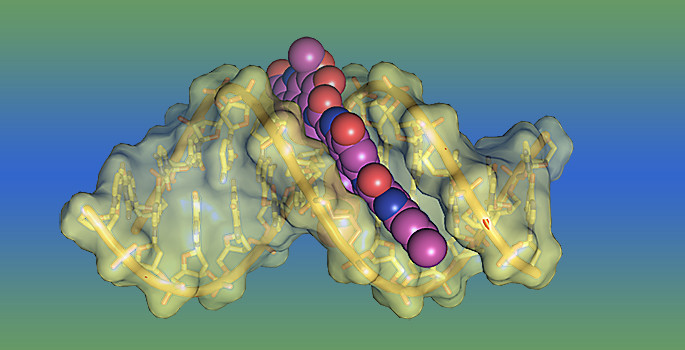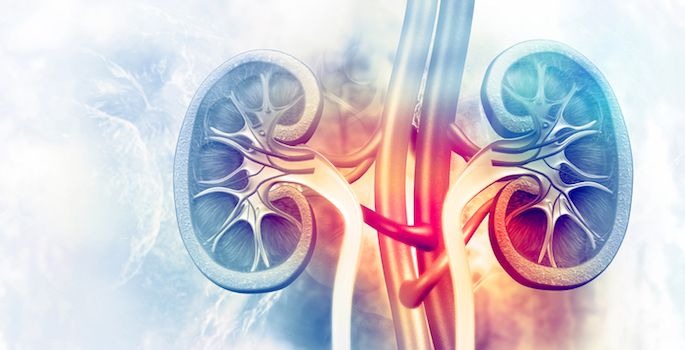Department Of Medicine
-

EHRs, biobanks and Mendelian diseases
Electronic health records and biobanks can be effectively combined to detect and study Mendelian diseases such as cystic fibrosis. Read MoreApr 30, 2020
-

Study tracks genomics of lung tumor behavior
A study by Vanderbilt researchers has identified genomic alterations in early stage adenocarcinomas of the lung that may indicate whether the lesions develop into aggressive tumors. Read MoreApr 13, 2020
-

Race, hormones and diabetes risk
Variation in the levels of hormones called natriuretic peptides may contribute to racial differences in susceptibility to diabetes, suggesting that this hormone system may be a target for reducing risk of the disease. Read MoreApr 8, 2020
-

Study reveals an inherited origin of prostate cancer in families
Vanderbilt researchers have identified haplotypes, ancestral fragments of DNA, that are associated with hereditary prostate cancer in a first-of-its-kind genomic study made possible by the study of prostate cancer patients with family histories of the disease. Read MoreApr 8, 2020
-

Meat intake and colorectal polyps
Red and processed meat intakes are strongly associated with increased risk of sessile serrated polyps, which are not as well studied as conventional adenomas. Read MoreMar 9, 2020
-

One-two punch for cancer
A drug combination effectively killed aggressive blood cancers in cell and animal models; now it’s being tested in patients. Read MoreMar 5, 2020
-

Study finds certain genetic test not useful in predicting heart disease risk
A Polygenic Risk Score — a genetic assessment that doctors have hoped could predict coronary heart disease (CHD) in patients — has been found not to be a useful predictive biomarker for disease risk. Read MoreFeb 27, 2020
-

Potential new heartburn drug studied at VUMC
An investigational drug that binds bile acids in the stomach can reduce the severity of heartburn symptoms in patients with treatment-resistant gastroesophageal reflux disease (GERD) when combined with a proton pump inhibitor (PPI), a new study suggests. Read MoreFeb 26, 2020
-

Post-transplant diabetes may be reversible: study
Post-transplantation diabetes mellitus (PTDM), a common complication of immunosuppressive drugs that are given to prevent transplant rejection, may be reversible and at least partially preventable, researchers at VUMC report. Read MoreFeb 20, 2020
-

Powering H. pylori pathogenesis
Timothy Cover and colleagues report new insights into the sources of energy used by a bacterial “machine” linked to the pathogenesis of stomach cancer. Read MoreFeb 6, 2020
-

Team tracks integrin’s role in lung function
Beta-1 integrin, a critical component of epithelial extracellular matrix receptors, is essential for normal lung function in adulthood, researchers at VUMC have discovered. Read MoreFeb 6, 2020
-

HDL-cholesterol and breast cancer risk
Genetic analyses suggest that high circulating HDL-cholesterol levels may increase breast cancer risk — a surprising finding since increased HDL-cholesterol is thought to be healthy. Read MoreJan 23, 2020
-

Vanderbilt-led team discovers new genetic disease and defines underlying mechanism
An international research team has discovered a new genetic syndrome caused by mutation of a single gene and named it CATIFA, an acronym for its core symptoms. Read MoreJan 13, 2020
-

Protein dynamics in the beating heart
To study the dynamics of structural proteins in the heart, Vanderbilt investigators generated a cellular tool they expect will be useful for screening drugs that affect heart muscle contraction. Read MoreDec 16, 2019
-

Gregor Mendel would be proud
A computational method that uses hospital billing codes and electronic health records can identify genetic disease cases before clinical teams do. Read MoreDec 12, 2019
-

Genetic screen in worms reveals critical step in insulin synthesis
The identification of a protein important for insulin synthesis may hold clues for understanding the pathogenesis of diabetes. Read MoreDec 4, 2019
-

Getting the goods on obesity
Obesity and two post-operative complications linked with it have associated genetic variants in common, suggesting that obesity may be the culprit. Read MoreNov 19, 2019
-

RSV transmission in the Middle East
Understanding how RSV is transmitted, which strains dominate and how new strains emerge around the globe will guide better vaccine and anti-viral drug design. Read MoreNov 14, 2019
-

Endotoxin shock protector
A novel tool developed by Vanderbilt scientists protects animals from endotoxin shock and can be used for mechanistic analyses of inflammation due to microbial and other insults. Read MoreNov 5, 2019
-

Acute kidney injury recovery time impacts future risk
Interventions that impact the timing of recovery following acute injury may improve future outcomes for patients. Read MoreOct 31, 2019